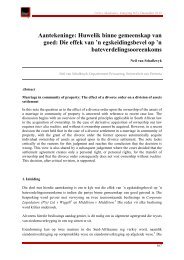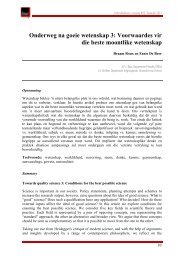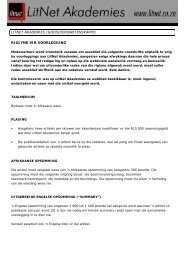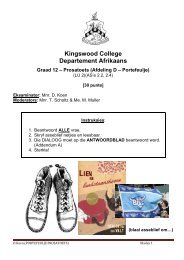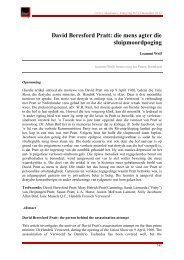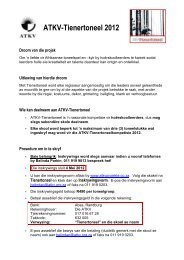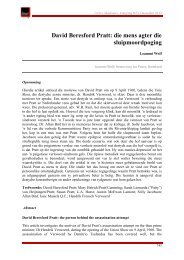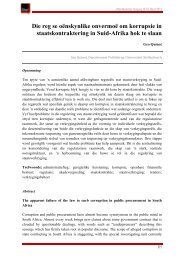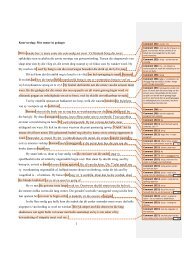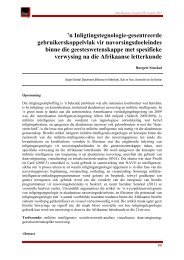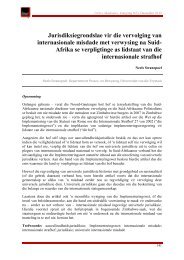- Page 1 and 2:
LitNet Akademies Maart 2013: jaarga
- Page 3 and 4:
Adviesraadslede van LitNet Akademie
- Page 5 and 6:
Inhoudsopgawe Afdeling: Regte “Tr
- Page 7 and 8:
Afdeling: Regte
- Page 9 and 10:
LitNet Akademies Jaargang 10 (1), M
- Page 11 and 12:
LitNet Akademies Jaargang 10 (1), M
- Page 13 and 14:
LitNet Akademies Jaargang 10 (1), M
- Page 15 and 16:
LitNet Akademies Jaargang 10 (1), M
- Page 17 and 18:
LitNet Akademies Jaargang 10 (1), M
- Page 19 and 20:
LitNet Akademies Jaargang 10 (1), M
- Page 21 and 22:
3.5 Die raamwerk in ere herstel? Gr
- Page 23 and 24:
LitNet Akademies Jaargang 10 (1), M
- Page 25 and 26:
3.8 Volkereg en die vorming van “
- Page 27 and 28:
3.9 Voorlopige gevolgtrekkings met
- Page 29 and 30:
LitNet Akademies Jaargang 10 (1), M
- Page 31 and 32:
LitNet Akademies Jaargang 10 (1), M
- Page 33 and 34:
LitNet Akademies Jaargang 10 (1), M
- Page 35 and 36:
LitNet Akademies Jaargang 10 (1), M
- Page 37 and 38:
LitNet Akademies Jaargang 10 (1), M
- Page 39 and 40:
LitNet Akademies Jaargang 10 (1), M
- Page 41 and 42:
LitNet Akademies Jaargang 10 (1), M
- Page 43 and 44:
Bibliografie LitNet Akademies Jaarg
- Page 45 and 46:
LitNet Akademies Jaargang 10 (1), M
- Page 47 and 48:
LitNet Akademies Jaargang 10 (1), M
- Page 49 and 50:
LitNet Akademies Jaargang 10 (1), M
- Page 51 and 52:
47 Dugard (1995:241-51). 48 Sien oo
- Page 53 and 54:
LitNet Akademies Jaargang 10 (1), M
- Page 55 and 56:
LitNet Akademies Jaargang 10 (1), M
- Page 57 and 58:
149 2005 9 BCLR 835 (KH), 2005 6 SA
- Page 59 and 60:
190 Klug (2000). 191 Botha (2007:57
- Page 61 and 62:
LitNet Akademies Jaargang 10 (1), M
- Page 63 and 64:
LitNet Akademies Jaargang 10 (1), M
- Page 65 and 66:
LitNet Akademies Jaargang 10 (1), M
- Page 67 and 68:
LitNet Akademies Jaargang 10 (1), M
- Page 69 and 70:
LitNet Akademies Jaargang 10 (1), M
- Page 71 and 72:
LitNet Akademies Jaargang 10 (1), M
- Page 73 and 74:
LitNet Akademies Jaargang 10 (1), M
- Page 75 and 76:
LitNet Akademies Jaargang 10 (1), M
- Page 77 and 78:
LitNet Akademies Jaargang 10 (1), M
- Page 79 and 80:
Bibliografie LitNet Akademies Jaarg
- Page 81 and 82:
LitNet Akademies Jaargang 10 (1), M
- Page 83 and 84:
57 Wet 71 van 2008 art. 141(2)(c)(i
- Page 85 and 86:
89 Wet 61 van 1973 art. 434A(1). 90
- Page 87 and 88:
LitNet Akademies Jaargang 10 (1), M
- Page 89 and 90:
LitNet Akademies Jaargang 10 (1), M
- Page 91 and 92:
LitNet Akademies Jaargang 10 (1), M
- Page 93 and 94:
LitNet Akademies Jaargang 10 (1), M
- Page 95 and 96:
LitNet Akademies Jaargang 10 (1), M
- Page 97 and 98:
3. Arbeidswetgewing binne die Suid-
- Page 99 and 100:
LitNet Akademies Jaargang 10 (1), M
- Page 101 and 102:
LitNet Akademies Jaargang 10 (1), M
- Page 103 and 104:
LitNet Akademies Jaargang 10 (1), M
- Page 105 and 106:
LitNet Akademies Jaargang 10 (1), M
- Page 107 and 108:
LitNet Akademies Jaargang 10 (1), M
- Page 109 and 110:
LitNet Akademies Jaargang 10 (1), M
- Page 111 and 112:
LitNet Akademies Jaargang 10 (1), M
- Page 113 and 114:
71 Art. 131(1) van die Maatskappywe
- Page 115 and 116:
LitNet Akademies Jaargang 10 (1), M
- Page 117 and 118:
LitNet Akademies Jaargang 10 (1), M
- Page 119 and 120:
LitNet Akademies Jaargang 10 (1), M
- Page 121 and 122:
LitNet Akademies Jaargang 10 (1), M
- Page 123 and 124:
LitNet Akademies Jaargang 10 (1), M
- Page 125 and 126:
2.2 Die estoppelvraagstuk LitNet Ak
- Page 127 and 128:
LitNet Akademies Jaargang 10 (1), M
- Page 129 and 130:
LitNet Akademies Jaargang 10 (1), M
- Page 131 and 132:
LitNet Akademies Jaargang 10 (1), M
- Page 133 and 134:
LitNet Akademies Jaargang 10 (1), M
- Page 135 and 136:
LitNet Akademies Jaargang 10 (1), M
- Page 137 and 138:
LitNet Akademies Jaargang 10 (1), M
- Page 139 and 140:
LitNet Akademies Jaargang 10 (1), M
- Page 141 and 142:
LitNet Akademies Jaargang 10 (1), M
- Page 143 and 144:
LitNet Akademies Jaargang 10 (1), M
- Page 145 and 146:
LitNet Akademies Jaargang 10 (1), M
- Page 147 and 148:
LitNet Akademies Jaargang 10 (1), M
- Page 149 and 150:
LitNet Akademies Jaargang 10 (1), M
- Page 151 and 152:
LitNet Akademies Jaargang 10 (1), M
- Page 153 and 154:
LitNet Akademies Jaargang 10 (1), M
- Page 155 and 156:
LitNet Akademies Jaargang 10 (1), M
- Page 157 and 158:
LitNet Akademies Jaargang 10 (1), M
- Page 159 and 160:
Bibliografie LitNet Akademies Jaarg
- Page 161 and 162:
LitNet Akademies Jaargang 10 (1), M
- Page 163 and 164:
Eindnotas 1 Hierdie artikel is geba
- Page 165 and 166:
LitNet Akademies Jaargang 10 (1), M
- Page 167 and 168:
68 56. 69 1975 3 All ER 314 (CA). 7
- Page 169 and 170:
109 5, 6, 7, 41. 110 Joubert (2004:
- Page 171 and 172:
LitNet Akademies Jaargang 10 (1), M
- Page 173 and 174:
184 Zeffertt en Paizes (1986:15-6).
- Page 175 and 176:
225 1879 4 CPD 450. 226 1920 1 Ch 4
- Page 177 and 178:
265 Schmidt (1982:594). LitNet Akad
- Page 179 and 180:
295 Clifford v Turrel 1845 1 Y&C Ch
- Page 181 and 182:
339 Sien die bespreking supra par.
- Page 183 and 184:
LitNet Akademies Jaargang 10 (1), M
- Page 185 and 186:
LitNet Akademies Jaargang 10 (1), M
- Page 187 and 188:
1. Inleiding LitNet Akademies Jaarg
- Page 189 and 190:
3. Slagoffers van geweldsmisdade in
- Page 191 and 192:
LitNet Akademies Jaargang 10 (1), M
- Page 193 and 194:
LitNet Akademies Jaargang 10 (1), M
- Page 195 and 196:
LitNet Akademies Jaargang 10 (1), M
- Page 197 and 198:
Bibliografie LitNet Akademies Jaarg
- Page 199 and 200:
LitNet Akademies Jaargang 10 (1), M
- Page 201 and 202:
13 S v Matyityi 2011 1 SA 40 (HHA)
- Page 203 and 204:
37 Riglyn 4 (eindnota 19 hier bo).
- Page 205 and 206:
LitNet Akademies Jaargang 10 (1), M
- Page 207 and 208:
Abstract LitNet Akademies Jaargang
- Page 209 and 210:
LitNet Akademies Jaargang 10 (1), M
- Page 211 and 212:
3.5 ’n Dringende oproep om doeltr
- Page 213 and 214:
5.1 Verby die staat na die hele wê
- Page 215 and 216:
LitNet Akademies Jaargang 10 (1), M
- Page 217 and 218:
Bibliografie LitNet Akademies Jaarg
- Page 219 and 220:
LitNet Akademies Jaargang 10 (1), M
- Page 221 and 222:
33 Folke e.a. (2011:720). 34 Dalby
- Page 223 and 224:
LitNet Akademies Jaargang 10 (1), M
- Page 225 and 226:
LitNet Akademies Jaargang 10 (1), M
- Page 227 and 228:
LitNet Akademies Jaargang 10 (1), M
- Page 229 and 230:
3. Die Suid-Afrikaanse reg betreffe
- Page 231 and 232:
LitNet Akademies Jaargang 10 (1), M
- Page 233 and 234:
LitNet Akademies Jaargang 10 (1), M
- Page 235 and 236:
LitNet Akademies Jaargang 10 (1), M
- Page 237 and 238:
LitNet Akademies Jaargang 10 (1), M
- Page 239 and 240:
LitNet Akademies Jaargang 10 (1), M
- Page 241 and 242:
LitNet Akademies Jaargang 10 (1), M
- Page 243 and 244:
LitNet Akademies Jaargang 10 (1), M
- Page 245 and 246:
Quinot, G. en S. Arrowsmith (reds.)
- Page 247 and 248:
11 Departement van Handel en Nywerh
- Page 249 and 250:
33 Tesouriereg. 16A9.1 lui: The acc
- Page 251 and 252:
LitNet Akademies Jaargang 10 (1), M
- Page 253 and 254:
LitNet Akademies Jaargang 10 (1), M
- Page 255 and 256:
LitNet Akademies Jaargang 10 (1), M
- Page 257 and 258:
LitNet Akademies Jaargang 10 (1), M
- Page 259 and 260:
LitNet Akademies Jaargang 10 (1), M
- Page 261 and 262:
LitNet Akademies Jaargang 10 (1), M
- Page 263 and 264:
LitNet Akademies Jaargang 10 (1), M
- Page 265 and 266:
LitNet Akademies Jaargang 10 (1), M
- Page 267 and 268:
LitNet Akademies Jaargang 10 (1), M
- Page 269 and 270:
LitNet Akademies Jaargang 10 (1), M
- Page 271 and 272:
LitNet Akademies Jaargang 10 (1), M
- Page 273 and 274:
LitNet Akademies Jaargang 10 (1), M
- Page 275 and 276:
LitNet Akademies Jaargang 10 (1), M
- Page 277 and 278:
LitNet Akademies Jaargang 10 (1), M
- Page 279 and 280:
LitNet Akademies Jaargang 10 (1), M
- Page 281 and 282:
LitNet Akademies Jaargang 10 (1), M
- Page 283 and 284:
LitNet Akademies Jaargang 10 (1), M
- Page 285 and 286:
LitNet Akademies Jaargang 10 (1), M
- Page 287 and 288:
Opsomming LitNet Akademies Jaargang
- Page 289 and 290:
LitNet Akademies Jaargang 10 (1), M
- Page 291 and 292:
LitNet Akademies Jaargang 10 (1), M
- Page 293 and 294:
LitNet Akademies Jaargang 10 (1), M
- Page 295 and 296:
LitNet Akademies Jaargang 10 (1), M
- Page 297 and 298:
LitNet Akademies Jaargang 10 (1), M
- Page 299 and 300:
LitNet Akademies Jaargang 10 (1), M
- Page 301 and 302:
LitNet Akademies Jaargang 10 (1), M
- Page 303 and 304:
LitNet Akademies Jaargang 10 (1), M
- Page 305 and 306:
LitNet Akademies Jaargang 10 (1), M
- Page 307 and 308:
LitNet Akademies Jaargang 10 (1), M
- Page 309 and 310:
LitNet Akademies Jaargang 10 (1), M
- Page 311 and 312:
LitNet Akademies Jaargang 10 (1), M
- Page 313 and 314:
LitNet Akademies Jaargang 10 (1), M
- Page 315 and 316:
LitNet Akademies Jaargang 10 (1), M
- Page 317 and 318:
LitNet Akademies Jaargang 10 (1), M
- Page 319 and 320:
Abstract LitNet Akademies Jaargang
- Page 321 and 322:
LitNet Akademies Jaargang 10 (1), M
- Page 323 and 324:
LitNet Akademies Jaargang 10 (1), M
- Page 325 and 326:
LitNet Akademies Jaargang 10 (1), M
- Page 327 and 328:
LitNet Akademies Jaargang 10 (1), M
- Page 329 and 330:
LitNet Akademies Jaargang 10 (1), M
- Page 331 and 332:
LitNet Akademies Jaargang 10 (1), M
- Page 333 and 334:
LitNet Akademies Jaargang 10 (1), M
- Page 335 and 336:
LitNet Akademies Jaargang 10 (1), M
- Page 337 and 338:
LitNet Akademies Jaargang 10 (1), M
- Page 339 and 340:
LitNet Akademies Jaargang 10 (1), M
- Page 341 and 342:
LitNet Akademies Jaargang 10 (1), M
- Page 343 and 344:
LitNet Akademies Jaargang 10 (1), M
- Page 345 and 346:
LitNet Akademies Jaargang 10 (1), M
- Page 347 and 348:
LitNet Akademies Jaargang 10 (1), M
- Page 349 and 350:
LitNet Akademies Jaargang 10 (1), M
- Page 351 and 352:
LitNet Akademies Jaargang 10 (1), M
- Page 353 and 354:
1. Inleiding LitNet Akademies Jaarg
- Page 355 and 356:
LitNet Akademies Jaargang 10 (1), M
- Page 357 and 358:
LitNet Akademies Jaargang 10 (1), M
- Page 359 and 360:
LitNet Akademies Jaargang 10 (1), M
- Page 361 and 362:
4.5 Bespreking van die bevindinge L
- Page 363 and 364:
LitNet Akademies Jaargang 10 (1), M
- Page 365 and 366:
LitNet Akademies Jaargang 10 (1), M
- Page 367 and 368:
LitNet Akademies Jaargang 10 (1), M
- Page 369 and 370:
LitNet Akademies Jaargang 10 (1), M
- Page 371 and 372:
LitNet Akademies Jaargang 10 (1), M
- Page 373 and 374:
LitNet Akademies Jaargang 10 (1), M
- Page 375 and 376:
LitNet Akademies Jaargang 10 (1), M
- Page 377 and 378:
LitNet Akademies Jaargang 10 (1), M
- Page 379 and 380:
LitNet Akademies Jaargang 10 (1), M
- Page 381 and 382:
LitNet Akademies Jaargang 10 (1), M
- Page 383 and 384:
LitNet Akademies Jaargang 10 (1), M
- Page 385 and 386:
LitNet Akademies Jaargang 10 (1), M
- Page 387 and 388:
Opsomming LitNet Akademies Jaargang
- Page 389 and 390:
LitNet Akademies Jaargang 10 (1), M
- Page 391 and 392:
LitNet Akademies Jaargang 10 (1), M
- Page 393 and 394:
LitNet Akademies Jaargang 10 (1), M
- Page 395 and 396: 3. Uitbeelding van die Anglo-Boereo
- Page 397 and 398: LitNet Akademies Jaargang 10 (1), M
- Page 399 and 400: LitNet Akademies Jaargang 10 (1), M
- Page 401 and 402: LitNet Akademies Jaargang 10 (1), M
- Page 403 and 404: LitNet Akademies Jaargang 10 (1), M
- Page 405 and 406: LitNet Akademies Jaargang 10 (1), M
- Page 407 and 408: LitNet Akademies Jaargang 10 (1), M
- Page 409 and 410: LitNet Akademies Jaargang 10 (1), M
- Page 411 and 412: LitNet Akademies Jaargang 10 (1), M
- Page 413 and 414: LitNet Akademies Jaargang 10 (1), M
- Page 415 and 416: LitNet Akademies Jaargang 10 (1), M
- Page 417 and 418: LitNet Akademies Jaargang 10 (1), M
- Page 419 and 420: Dlamini, J. 2009. Native nostalgia.
- Page 421 and 422: —. 2012. Sirkusboere (resensie).
- Page 423 and 424: Abstract LitNet Akademies Jaargang
- Page 425 and 426: LitNet Akademies Jaargang 10 (1), M
- Page 427 and 428: LitNet Akademies Jaargang 10 (1), M
- Page 429 and 430: LitNet Akademies Jaargang 10 (1), M
- Page 431 and 432: LitNet Akademies Jaargang 10 (1), M
- Page 433 and 434: LitNet Akademies Jaargang 10 (1), M
- Page 435 and 436: LitNet Akademies Jaargang 10 (1), M
- Page 437 and 438: LitNet Akademies Jaargang 10 (1), M
- Page 439 and 440: Figuur 4. Gebruikerstatistiek van d
- Page 441 and 442: LitNet Akademies Jaargang 10 (1), M
- Page 443 and 444: Figuur 7. Tegnologiese onderrig-lee
- Page 445: LitNet Akademies Jaargang 10 (1), M
- Page 449 and 450: LitNet Akademies Jaargang 10 (1), M
- Page 451 and 452: LitNet Akademies Jaargang 10 (1), M
- Page 453 and 454: LitNet Akademies Jaargang 10 (1), M
- Page 455 and 456: Vuil hande pa, ek onthou ’n plaas
- Page 457 and 458: intussen hou ek die spieël angstig
- Page 459 and 460: Die vel is metaal soos ’n sinkdam
- Page 461 and 462: LitNet Akademies Jaargang 10 (1), M
- Page 463 and 464: LitNet Akademies Jaargang 10 (1), M
- Page 465 and 466: 6. Gay seksualiteit LitNet Akademie
- Page 467 and 468: Sontag (1991:130) skryf in dié ver
- Page 469 and 470: Flirt4free.com laatnag-porno ’n l
- Page 471 and 472: LitNet Akademies Jaargang 10 (1), M
- Page 473 and 474: LitNet Akademies Jaargang 10 (1), M
- Page 475 and 476: LitNet Akademies Jaargang 10 (1), M
- Page 477 and 478: LitNet Akademies Jaargang 10 (1), M
- Page 479 and 480: LitNet Akademies Jaargang 10 (1), M
- Page 481 and 482: LitNet Akademies Jaargang 10 (1), M
- Page 483 and 484: LitNet Akademies Jaargang 10 (1), M
- Page 485 and 486: LitNet Akademies Jaargang 10 (1), M
- Page 487 and 488: LitNet Akademies Jaargang 10 (1), M
- Page 489 and 490: LitNet Akademies Jaargang 10 (1), M
- Page 491 and 492: LitNet Akademies Jaargang 10 (1), M
- Page 493 and 494: LitNet Akademies Jaargang 10 (1), M
- Page 495 and 496: LitNet Akademies Jaargang 10 (1), M
- Page 497 and 498:
LitNet Akademies Jaargang 10 (1), M
- Page 499 and 500:
Die volgende onvoorwaardelik positi
- Page 501 and 502:
werklikhede van hulle alledaagse be
- Page 503 and 504:
LitNet Akademies Jaargang 10 (1), M
- Page 505 and 506:
LitNet Akademies Jaargang 10 (1), M
- Page 507 and 508:
LitNet Akademies Jaargang 10 (1), M
- Page 509 and 510:
LitNet Akademies Jaargang 10 (1), M
- Page 511 and 512:
LitNet Akademies Jaargang 10 (1), M
- Page 513 and 514:
LitNet Akademies Jaargang 10 (1), M
- Page 515 and 516:
LitNet Akademies Jaargang 10 (1), M
- Page 517 and 518:
LitNet Akademies Jaargang 10 (1), M
- Page 519 and 520:
Bibliografie LitNet Akademies Jaarg
- Page 521 and 522:
LitNet Akademies Jaargang 10 (1), M
- Page 523 and 524:
LitNet Akademies Jaargang 10 (1), M
- Page 525 and 526:
LitNet Akademies Jaargang 10 (1), M
- Page 527 and 528:
LitNet Akademies Jaargang 10 (1), M
- Page 529 and 530:
LitNet Akademies Jaargang 10 (1), M
- Page 531 and 532:
LitNet Akademies Jaargang 10 (1), M
- Page 533 and 534:
LitNet Akademies Jaargang 10 (1), M
- Page 535 and 536:
LitNet Akademies Jaargang 10 (1), M
- Page 537 and 538:
LitNet Akademies Jaargang 10 (1), M
- Page 539 and 540:
LitNet Akademies Jaargang 10 (1), M
- Page 541 and 542:
LitNet Akademies Jaargang 10 (1), M
- Page 543 and 544:
LitNet Akademies Jaargang 10 (1), M
- Page 545 and 546:
LitNet Akademies Jaargang 10 (1), M
- Page 547 and 548:
LitNet Akademies Jaargang 10 (1), M
- Page 549 and 550:
LitNet Akademies Jaargang 10 (1), M
- Page 551 and 552:
LitNet Akademies Jaargang 10 (1), M
- Page 553 and 554:
Joubert, J. 2012a. “Afrikatale mo
- Page 555 and 556:
LitNet Akademies Jaargang 10 (1), M
- Page 557 and 558:
LitNet Akademies Jaargang 10 (1), M
- Page 559 and 560:
LitNet Akademies Jaargang 10 (1), M
- Page 561 and 562:
LitNet Akademies Jaargang 10 (1), M
- Page 563 and 564:
4.1 Ouderdomsgroep LitNet Akademies
- Page 565 and 566:
LitNet Akademies Jaargang 10 (1), M
- Page 567 and 568:
LitNet Akademies Jaargang 10 (1), M
- Page 569 and 570:
LitNet Akademies Jaargang 10 (1), M
- Page 571 and 572:
LitNet Akademies Jaargang 10 (1), M
- Page 573 and 574:
LitNet Akademies Jaargang 10 (1), M
- Page 575 and 576:
LitNet Akademies Jaargang 10 (1), M
- Page 577 and 578:
10.1.3 Die daarstel van beter gelee
- Page 579 and 580:
10.3.1 Interpersoonlike verlies Lit
- Page 581 and 582:
LitNet Akademies Jaargang 10 (1), M
- Page 583 and 584:
LitNet Akademies Jaargang 10 (1), M
- Page 585 and 586:
LitNet Akademies Jaargang 10 (1), M
- Page 587 and 588:
LitNet Akademies Jaargang 10 (1), M
- Page 589 and 590:
Eindnotas LitNet Akademies Jaargang
- Page 591 and 592:
LitNet Akademies Jaargang 10 (1), M
- Page 593 and 594:
LitNet Akademies Jaargang 10 (1), M
- Page 595 and 596:
LitNet Akademies Jaargang 10 (1), M
- Page 597 and 598:
LitNet Akademies Jaargang 10 (1), M
- Page 599 and 600:
3. Die veld van kulturele produksie
- Page 601 and 602:
LitNet Akademies Jaargang 10 (1), M
- Page 603 and 604:
LitNet Akademies Jaargang 10 (1), M
- Page 605 and 606:
5. Ten slotte: die media en kunste
- Page 607 and 608:
LitNet Akademies Jaargang 10 (1), M
- Page 609 and 610:
LitNet Akademies Jaargang 10 (1), M
- Page 611 and 612:
LitNet Akademies Jaargang 10 (1), M
- Page 613 and 614:
LitNet Akademies Jaargang 10 (1), M
- Page 615 and 616:
1. Inleiding LitNet Akademies Jaarg
- Page 617 and 618:
2.1 Aktiewe verbeelding Die volgend
- Page 619 and 620:
LitNet Akademies Jaargang 10 (1), M
- Page 621 and 622:
1. Vind ’n stil plek om te bid. 2
- Page 623 and 624:
LitNet Akademies Jaargang 10 (1), M
- Page 625 and 626:
LitNet Akademies Jaargang 10 (1), M
- Page 627 and 628:
LitNet Akademies Jaargang 10 (1), M
- Page 629 and 630:
LitNet Akademies Jaargang 10 (1), M
- Page 631 and 632:
LitNet Akademies Jaargang 10 (1), M
- Page 633 and 634:
LitNet Akademies Jaargang 10 (1), M
- Page 635 and 636:
LitNet Akademies Jaargang 10 (1), M
- Page 637 and 638:
34 “I must learn to take the init
- Page 639 and 640:
LitNet Akademies Jaargang 10 (1), M
- Page 641 and 642:
LitNet Akademies Jaargang 10 (1), M
- Page 643 and 644:
LitNet Akademies Jaargang 10 (1), M
- Page 645 and 646:
LitNet Akademies Jaargang 10 (1), M
- Page 647 and 648:
LitNet Akademies Jaargang 10 (1), M
- Page 649 and 650:
LitNet Akademies Jaargang 10 (1), M
- Page 651 and 652:
LitNet Akademies Jaargang 10 (1), M
- Page 653 and 654:
LitNet Akademies Jaargang 10 (1), M
- Page 655 and 656:
LitNet Akademies Jaargang 10 (1), M
- Page 657 and 658:
LitNet Akademies Jaargang 10 (1), M
- Page 659 and 660:
LitNet Akademies Jaargang 10 (1), M
- Page 661 and 662:
Eindnotas LitNet Akademies Jaargang
- Page 663 and 664:
LitNet Akademies Jaargang 10 (1), M
- Page 665:
Inligting oor LitNet Akademies LitN



